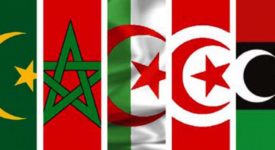Many analysts would say that the countries in North Africa and Middle East have found themselves at a critical juncture, showing contradictory patterns of fragility and durability. The series of uprisings that swept the region starting in late 2010 were revolutionary on the onset, but beyond Tunisia, it is rather the counter-revolutionary sentiment that seems to be more persistent. Nonetheless, the region has undergone changes alongside intense levels of popular mobilization, transnational activism and violence.
The consequences have been very disruptive and resulted in challenges to both regimes and the very sovereignty and territorial integrity of states, which has in turn initiated some shifts in the regional power balance and repeated episodes of external intervention. Some observers have therefore argued that the entire system, which has always been vulnerable and contested, is finally going through radical transformation.
The current environment, which is undoubtedly very challenging for the MENA region, has a tangible impact on the international order. Some authoritarian regimes have fallen but others have been revived. Some countries are still plunged in conflicts and wars but some have emerged stronger and are on a good pathway of upholding a new balance of power. However, all these developments, with a 6-year hindsight, do not herald a new system revolution or major territorial changes. Some analysts have ambitiously compared the Syrian and Iraqi cases to that of the former Yugoslavia – as post-conflict creations with complex political backgrounds and a complex make-up of religions and ethnicities – but their paths have, however, been very different.
Not all states with multi ethnicities, tribes and religions are meant to fail. Rather than drastic scenarios such as imminent state failure, state reconfiguration and border redrawing, the international community should pay more attention to the domestic situation in the region. The Middle Eastern states are not ‘strong’ when it comes to popular legitimacy but Middle Eastern peoples – better informed and more connected than ever before – have firm views on the improvement of their situation.
In the longer term, and as a follow-up to the early phases of the uprisings, there is also a possibility of piecemeal recalibration of popular sovereignty or democracy on Middle Eastern terms. The spirit of the Arab Spring mobilized the public not necessarily in a conventional democratic sense but in the sense that the demand for dignity and freedom represented a stark rejection of authoritarianism.
Although the borders and states will likely stay intact at least in the medium run, there is still sizeable appetite for political change and thus the goals of reformers that were reflected in the slogans of dignity and freedom in the early Arab Spring will still be heard around the region. And in this sense these revolutions are indeed ‘unfinished’ – they are still in the making.
‘States and Sovereignty in the Middle East: Myths and Realities’ – Analysis by Louise Fawcett – Chatham House, The Royal Institute of International Affairs.
(The Analysis can be downloaded here)







